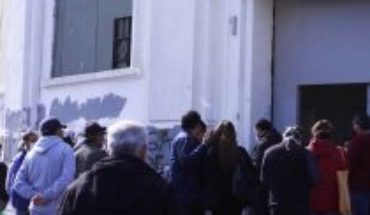Increased environmental awareness in conjunction with a greater detachment from material things has led to a significant increase in the so-called “digital platform economy”, however, on many occasions and is the need for job and wage precariousness that encourages consumer decisions. In this sense, if it was previously used to lease homes and cars, the phenomenon is currently spreading to more products and services.
From clothing, to offices, software licenses, tools, furniture, appliances, terraces, light and jewelry are some of the examples that can be rented or used through a subscription. This puts the deflationary nature and the risk of precarization in the labour market as the main characteristics of today’s economy. At the same time that traditional enterprises must adapt to new changes to remain competitive and governments must begin to modify and regulate the so-called “platform economy”.
The rental, subscription and pay-as-you-go society has already become a true way of life for millions of people everywhere, especially young people. It is that they effectively demonstrate greater management of everything related to digital and a greater willingness to learn. For this age group it is easier and cheaper to use this mechanism to acquire all kinds of services.
The new rental company
To get books, music and movies in the cloud, more platforms like Itunes, Netflix and Amazon are used every day. Netflix has brought the TV subscription to 140 million households around the globe and Spotify already has 108 million premium subscribers.
In our country it is known under the name of a collaborative economy and encompasses a wide variety of activities. On the one hand, it is a way of sharing, exchanging or renting goods without the need for possession, and on the other, that these exchanges are based on applications or web platforms.
The funny thing is that these consumer platform services in general have not been affected by the mistrust that could arise from getting into a car or sleeping in a property that is not their own for example and this is due to the use of personal profiles with value is and references added by the same community that has made use of the service. In this way, new ways of relating, exchanging and monetizing skills and economic goods have been given rise to.
A clear example is transportation through digital platforms such as Uber, Cabify and Beat. In a survey of 1,141 people with national Internet access by MediaInteractive, 80% of people report using these services at least once.
It is that time savings, greater convenience and less monetary cost seem to be the main motivations for using these services. Thus, today consumers are looking for a service that suits their living needs. This gives them greater comfort regardless of where they are. On the other hand, many people can use these services in order to get a better experience than the traditional ones.
Environmental awareness
In addition to all of the above, there is increasingly one in a feeling of widespread discontent with conventional current services and at the same time the consumer seeks more experiential over the possession of goods.
The precariousness of jobs and wages, the increase in technology, the lack of savings, the change of mindset with respect to the more adult generations, the lack of space in the homes, among other factors lead to people being increasingly convinced that renting is better for them than shopping.
On the other hand, this new form of consumption is closely linked to greater environmental awareness of the population that bets on a circular economy, recycling and reuse.
There is a new sensitivity when it comes to consuming. From the lasting it has moved on to the ephemeral. It is enduring and boring and now the accelerated consumption of goods and products is imposed.
translated from Spanish: Subscription and rental, the new forms of consumption that leave behind the purchase and acquisition
October 9, 2019 |





